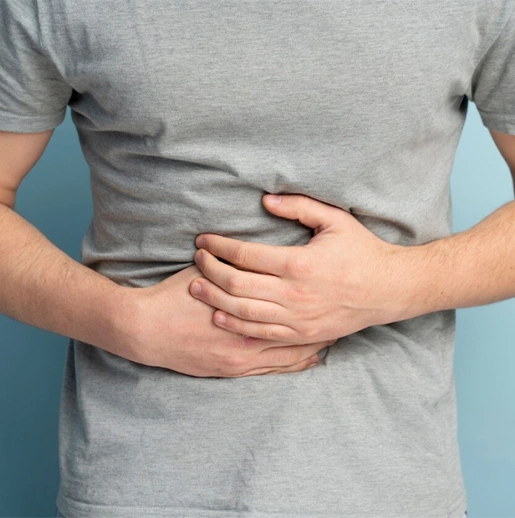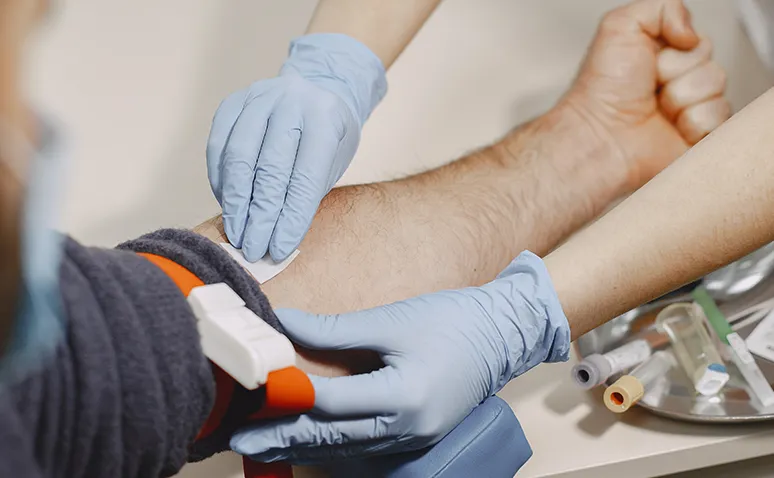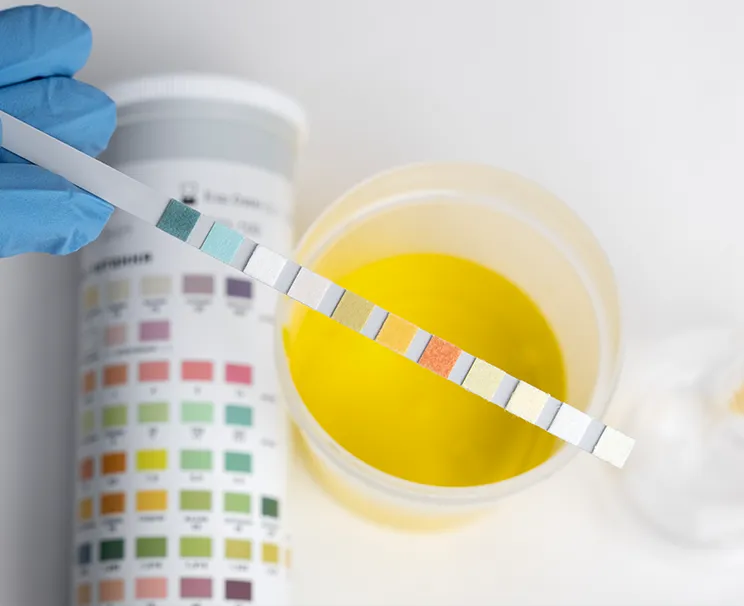What is fatty liver disease? It is a health problem characterized by excessive fat accumulation in liver cells. Also known as “hepatic steatosis” in medicine, this condition can make it difficult for the liver to perform its normal functions. It is often associated with factors such as obesity, poor eating habits, alcohol consumption and a sedentary lifestyle. However, non-alcoholic fatty liver disease, which is not related to alcohol and is more common, is also an important health problem.
What is fatty liver disease? This disease is closely linked to chronic diseases such as metabolic syndrome and diabetes, which are on the rise. Therefore, early diagnosis and treatment are of great importance. A healthy diet, regular exercise and weight control are the most effective ways to prevent fatty liver disease. In addition, limiting alcohol consumption and regular health check-ups also help reduce the risk. Lifestyle changes and compliance with doctor’s recommendations are the basis for maintaining liver health.
What Are the Symptoms of Fatty Liver?
Fatty liver is a health issue that progresses insidiously and often shows no symptoms in its early stages. However, as the condition advances, certain physical and clinical symptoms may emerge.
Also referred to as steatosis, this condition results from excessive fat accumulation in liver cells, negatively affecting the organ’s normal functions. Many people live with fatty liver without realizing it, as symptoms typically appear in more severe stages.
One of the most common symptoms is a feeling of discomfort or fullness in the abdominal area. Fatigue and weakness are also frequently reported. In advanced stages, physical enlargement of the liver, known as hepatomegaly, may be detected during a medical examination. This enlargement can cause a sense of fullness or pressure in the upper right part of the abdomen. Additionally, some patients may experience symptoms associated with liver disease, such as jaundice (yellowing of the skin).
One of the primary diagnostic tools for fatty liver is liver function tests, which measure specific enzyme levels in the blood to assess liver health. If liver dysfunction is detected, further advanced tests may be required. Untreated fatty liver can lead to inflammation, severe liver diseases, and even cirrhosis.

Recognizing symptoms early and taking necessary precautions are crucial in preventing disease progression. Maintaining a healthy lifestyle, balanced nutrition, and regular health check-ups are the most effective methods to protect liver health.

What Causes Fatty Liver?
Fatty liver may not present any symptoms in its early stages. However, over time, it can adversely affect liver functions and lead to serious health problems. The main causes of fatty liver include alcohol-related and non-alcohol-related factors.
Alcohol-related fatty liver develops due to regular and excessive alcohol consumption. Alcohol increases the metabolic burden on the liver, leading to fat accumulation within liver cells. Controlling alcohol intake is crucial for preventing this type of fatty liver.
In addition, obesity and poor dietary habits are significant causes of fatty liver. Obesity increases fat accumulation in liver cells, impairing the organ’s ability to function effectively.
In some individuals, fatty liver may cause inflammation and organ enlargement, leading to discomfort often referred to as liver pain. This is associated with inflammation in addition to fat accumulation and can result in more severe issues if untreated. Chronic viral infections, particularly hepatitis B and C, also elevate the risk of fatty liver.
Adopting a healthy lifestyle, engaging in regular exercise, and maintaining a balanced diet are essential in preventing fatty liver. Limiting alcohol consumption, managing weight, and undergoing regular health check-ups are effective strategies for protecting liver health. If symptoms or risk factors for fatty liver are present, seeking medical advice is recommended.
How Is Fatty Liver Treated?
When detected early, fatty liver can be managed and even reversed through lifestyle changes. The cornerstone of treatment involves adopting healthy habits and eliminating risk factors. Weight loss, in particular, is one of the most effective methods for treating fatty liver. Studies have shown that reducing body weight by 5-10% can significantly decrease liver fat.
A balanced and healthy diet plays a crucial role in treatment. A diet plan prepared by a qualified dietitian can aid in weight management and improve liver health. These diets typically include low-fat and low-sugar foods, along with plenty of fresh vegetables, fruits, whole grains, and healthy protein sources. Avoiding processed foods, trans fats, and excessive carbohydrates is also important.
Another factor frequently linked to fatty liver is diabetes. Controlling diabetes is critical in preventing the progression of fatty liver. Regulating blood sugar levels and reducing insulin resistance can alleviate the burden on the liver. Hence, individuals with diabetes should pay close attention to their diet and medication regimen.
Regular physical activity is also an indispensable part of treatment. Engaging in at least 150 minutes of moderate exercise per week supports weight loss and reduces liver fat. If diagnosed with fatty liver, consulting a healthcare provider to create an appropriate treatment plan is essential. These steps provide an effective approach to improving liver health and halting disease progression.
What Happens If You Have Fatty Liver?
Fatty liver progresses silently in its early stages but can impair liver function if untreated. The fat accumulated in liver cells can eventually lead to inflammation, resulting in a condition called “steatohepatitis.” This can further develop into fibrosis (liver scarring) and, in advanced stages, cirrhosis, which are severe complications. Additionally, fatty liver increases the risk of metabolic syndrome, diabetes, hypertension, and cardiovascular diseases. Therefore, early diagnosis and treatment are vital.
How Can Fatty Liver Be Quickly Reduced?
The key to quickly reducing fatty liver is lifestyle modification. One of the most effective methods is to reduce body weight by 5-10%. A healthy diet and regular exercise play a critical role in combating fatty liver. A low-carbohydrate, high-fiber, and antioxidant-rich diet is particularly recommended. Healthy fats such as olive oil, avocados, and walnuts, along with a diet rich in vegetables and fruits, support liver health. Completely abstaining from alcohol also facilitates rapid improvement. Additionally, scientific evidence suggests that coffee consumption may improve liver function.
How Is Fatty Liver Treated?
The treatment of fatty liver emphasizes lifestyle changes over medications. Weight loss and a healthy diet form the foundation of treatment. If underlying conditions such as diabetes or high cholesterol exist, managing these diseases is also crucial. Regular exercise and avoiding smoking can halt the progression of fatty liver. In advanced cases, a gastroenterologist or hepatologist may develop more specific treatment strategies. Regular health check-ups and liver function tests are essential for monitoring the treatment process.












